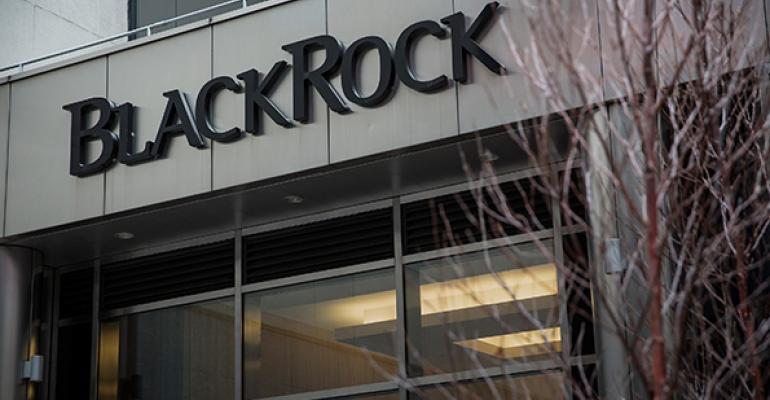By Sabrina Willmer
(Bloomberg) --It’s tough trying to be the Amazon.com of ETFs.
While BlackRock Inc. raked in $74 billion in exchange-traded fund flows in the second quarter, that record was in part obscured by revenue that failed to beat estimates. The revenue miss was largely driven by lower performance fees on two long-only funds that didn’t beat their benchmarks by as much as they did a year earlier and weaker securities lending revenue hampered by less merger-and-acquisition activity, said Chief Executive Officer Laurence D. Fink in an interview with Bloomberg.
Like Amazon did with online retailing, BlackRock got into the ETF arena early and has focused relentlessly on building its business by volume -- gathering as much investor money as possible. And just like Jeff Bezos, who ceded profit to win share and trounce rivals, Fink has seen expenses rise.
Revenue, while up, missed estimates for the fourth straight quarter, according to data compiled by Bloomberg. BlackRock’s second-quarter costs increased in almost every category including employee compensation and distribution and servicing costs. But assets under management increased about 5 percent from last quarter to $5.7 trillion.
BlackRock shares fell 2.9 percent at 9:40 a.m. in New York trading.
Asset managers are facing pressure as money flows out of more expensive active funds into lower fee passive products, where prices are headed to zero. The world’s largest provider of the products is in a better position than most, having entered the ETF business with the purchase of Barclays Global Investors in 2009.
At the same time, BlackRock continues to cut prices on the products, announcing this month a steep cut on a $10 billion exchange-traded fund that offers exposure to the mortgage-backed bond market. In October, BlackRock reduced fees on 15 core ETFs aimed at price sensitive retail customers and financial advisers and in December reduced expenses on six smart beta ETFs.
BlackRock continues to focus on improving its active business. This year, it fired more than 30 people in its active-equities group and moved billions of dollars into cheaper funds where quants play more of a role.
It’s also trying to adapt to industry pressure by investing in technology. It has made several acquisitions that management says will help diversify its revenue stream and drive more money into its products. The firm last month agreed to buy financial tech company Cachematrix and took a minority stake in European robo-adviser Scalable. It owns robo firm FutureAdvisor.
The firm’s average ETF fee slid to about 33 basis points last year, or 33 cents per $100 invested, from about 40 basis points in 2009, according to data from Morningstar Inc. The firm’s average mutual fund fee slid to 108 basis points from about 138 basis points during the same period.
To contact the reporter on this story: Sabrina Willmer in Boston at [email protected] To contact the editors responsible for this story: Margaret Collins at [email protected] Alan Mirabella





